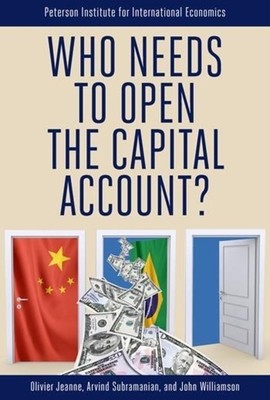
- We will send in 10–14 business days.
- Author: Olivier Jeanne
- Publisher: Peterson Institute for International Economics
- ISBN-10: 0881325112
- ISBN-13: 9780881325119
- Format: 15 x 22.6 x 1.3 cm, minkšti viršeliai
- Language: English
- SAVE -10% with code: EXTRA
Reviews
Description
Most countries emerged from the Second World War with capital accounts that were closed to the rest of the world. Since then, a process of capital account opening has occurred, with the result that all developed and many emerging-market countries now have capital accounts that are both de facto and de jure open, while many developing countries also have de facto openness. This study examines this in part by considering some of the first lessons from the current global financial crisis. This crisis may change the terms of the debate on capital account liberalization in a deeper and more lasting way than any of the crises of the past two decades because it may mark a reversal in the secular trend of financial liberalization at the core of the international financial system. The current crisis also raises new questions about the appropriate policy responses to boom-bust dynamics in domestic credit and in international credit flows. Intellectual consistency is needed between the domestic and international dimensions of financial regulation and the policies aimed at dealing with boom-bust dynamics in domestic and international credit.
EXTRA 10 % discount with code: EXTRA
The promotion ends in 21d.08:56:50
The discount code is valid when purchasing from 10 €. Discounts do not stack.
- Author: Olivier Jeanne
- Publisher: Peterson Institute for International Economics
- ISBN-10: 0881325112
- ISBN-13: 9780881325119
- Format: 15 x 22.6 x 1.3 cm, minkšti viršeliai
- Language: English English
Most countries emerged from the Second World War with capital accounts that were closed to the rest of the world. Since then, a process of capital account opening has occurred, with the result that all developed and many emerging-market countries now have capital accounts that are both de facto and de jure open, while many developing countries also have de facto openness. This study examines this in part by considering some of the first lessons from the current global financial crisis. This crisis may change the terms of the debate on capital account liberalization in a deeper and more lasting way than any of the crises of the past two decades because it may mark a reversal in the secular trend of financial liberalization at the core of the international financial system. The current crisis also raises new questions about the appropriate policy responses to boom-bust dynamics in domestic credit and in international credit flows. Intellectual consistency is needed between the domestic and international dimensions of financial regulation and the policies aimed at dealing with boom-bust dynamics in domestic and international credit.


Reviews